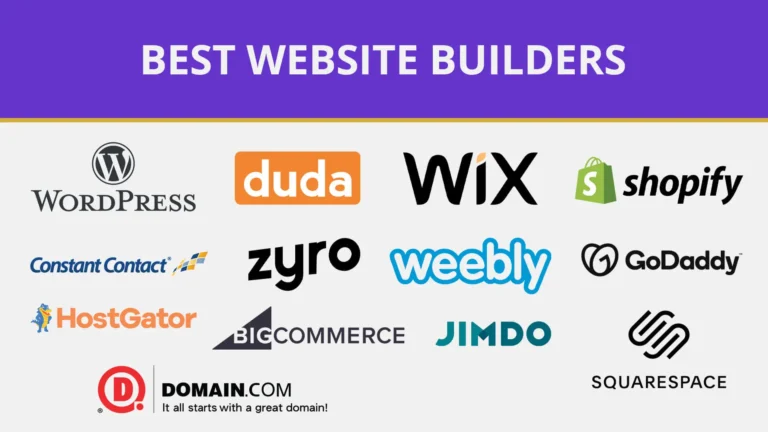Starting your blogging journey can be exciting, but also a bit overwhelming—especially when you’re faced with a big question like: Should I use WordPress.com or WordPress.org?
Both are part of the WordPress ecosystem, yet they offer very different experiences. Choosing the right one can make a significant impact on your blog’s growth, monetization, and creative freedom.
In this detailed guide by Helping Bloggers, we’ll break down the core differences, pros, and cons of WordPress.com vs WordPress.org, so you can make an informed decision that suits your goals.
Table of Contents
- What Is WordPress?
- WordPress.com vs WordPress.org: Quick Comparison Table
- Key Differences Between WordPress.com and WordPress.org
- Pros and Cons of WordPress.com
- Pros and Cons of WordPress.org
- Which One Should You Choose?
- Real-World Use Cases
- How to Migrate from WordPress.com to WordPress.org
- Final Verdict
- FAQ Section
What Is WordPress?
WordPress is the world’s most popular content management system (CMS), powering over 40% of all websites on the internet.
There are two versions:
- WordPress.com: A hosted platform managed by Automattic. Great for beginners who want a hands-off experience.
- WordPress.org: A self-hosted, open-source software that gives you full control over your website.

WordPress.com vs WordPress.org: Quick Comparison Table
| Feature | WordPress.com | WordPress.org |
|---|---|---|
| Hosting | Included (managed) | You need to buy hosting |
| Domain Name | Subdomain (free), custom (paid) | Custom domain (you own it) |
| Monetization | Limited, requires paid plan | Full monetization flexibility |
| Plugins | Limited to paid plans | Unlimited access |
| Themes | Limited on free plans | Full theme customization |
| Maintenance | Handled by WordPress | You’re responsible |
| Cost | Free to start, but features are gated | Domain + hosting cost required |
| Ideal for… | Hobby bloggers, personal blogs | Business blogs, professional websites |

Key Differences Between WordPress.com and WordPress.org
Let’s dive deeper into the key areas that separate these two platforms.
1. Hosting & Ownership
- WordPress.com takes care of hosting for you. You don’t have to manage servers or install software.
- WordPress.org gives you full control, but you’ll need to get your own web hosting provider (like Bluehost, SiteGround, or Hostinger).
2. Customization & Plugins
- WordPress.com restricts plugins and advanced features to paid plans.
- WordPress.org lets you install any plugin, including page builders, SEO tools, and analytics.
3. Monetization Options
- WordPress.com allows monetization only on premium plans and has restrictions (e.g., WordAds).
- WordPress.org is open—you can run ads, affiliate links, sell products, and much more.
Pros and Cons of WordPress.com
✅ Pros:
- No need to buy hosting or set up a server
- Great for non-techies
- Automatic updates and backups
- Free plan available
❌ Cons:
- Limited customization
- Ads shown on free plan
- Can\’t install plugins on free plan
- Domain name looks like:
yourblog.wordpress.comunless paid

Pros and Cons of WordPress.org
✅ Pros:
- Total control over your website
- Access to 59,000+ free plugins
- Freedom to customize themes and code
- Full monetization potential
❌ Cons:
- Requires separate hosting and domain setup
- Manual updates and backups (though plugins can automate this)
- Learning curve for beginners

Which One Should You Choose?
The choice boils down to your goals and experience level.
Choose WordPress.com if:
- You’re starting a personal blog
- You want a “set it and forget it” solution
- You’re not planning to monetize heavily
- You don’t want to worry about technical stuff
Choose WordPress.org if:
- You’re building a business or professional blog
- You plan to monetize (ads, courses, affiliate links)
- You want to grow and scale your site
- You want full creative control

Real-World Use Cases
WordPress.com:
- Personal blogs and diaries
- School or student projects
- Non-profit informational websites
WordPress.org:
- Business websites
- Affiliate blogs
- eCommerce stores
- Portfolio sites
How to Migrate from WordPress.com to WordPress.org
If you started with WordPress.com and want more control, you can move to WordPress.org easily.
Steps:
- Purchase hosting and a domain (e.g., Bluehost)
- Install WordPress.org on your host
- Export content from WordPress.com via Tools > Export
- Import to your new site via Tools > Import
- Redirect your old blog to your new domain (WordPress.com charges a small fee for this)
Final Verdict: WordPress.com vs WordPress.org
So which is better?
- If you\’re just starting and want simplicity, WordPress.com is a good place to test the waters.
- If you\’re serious about blogging and want to grow a real brand, WordPress.org is the clear winner.
At Helping Bloggers, we always recommend starting with WordPress.org if you\’re committed to building a successful blog.
Frequently Asked Questions (FAQ)
Yes, WordPress.com offers a free plan. However, it includes ads, limited storage, and no monetization options.
Absolutely! You can export your content from WordPress.com and import it into a WordPress.org site anytime.






